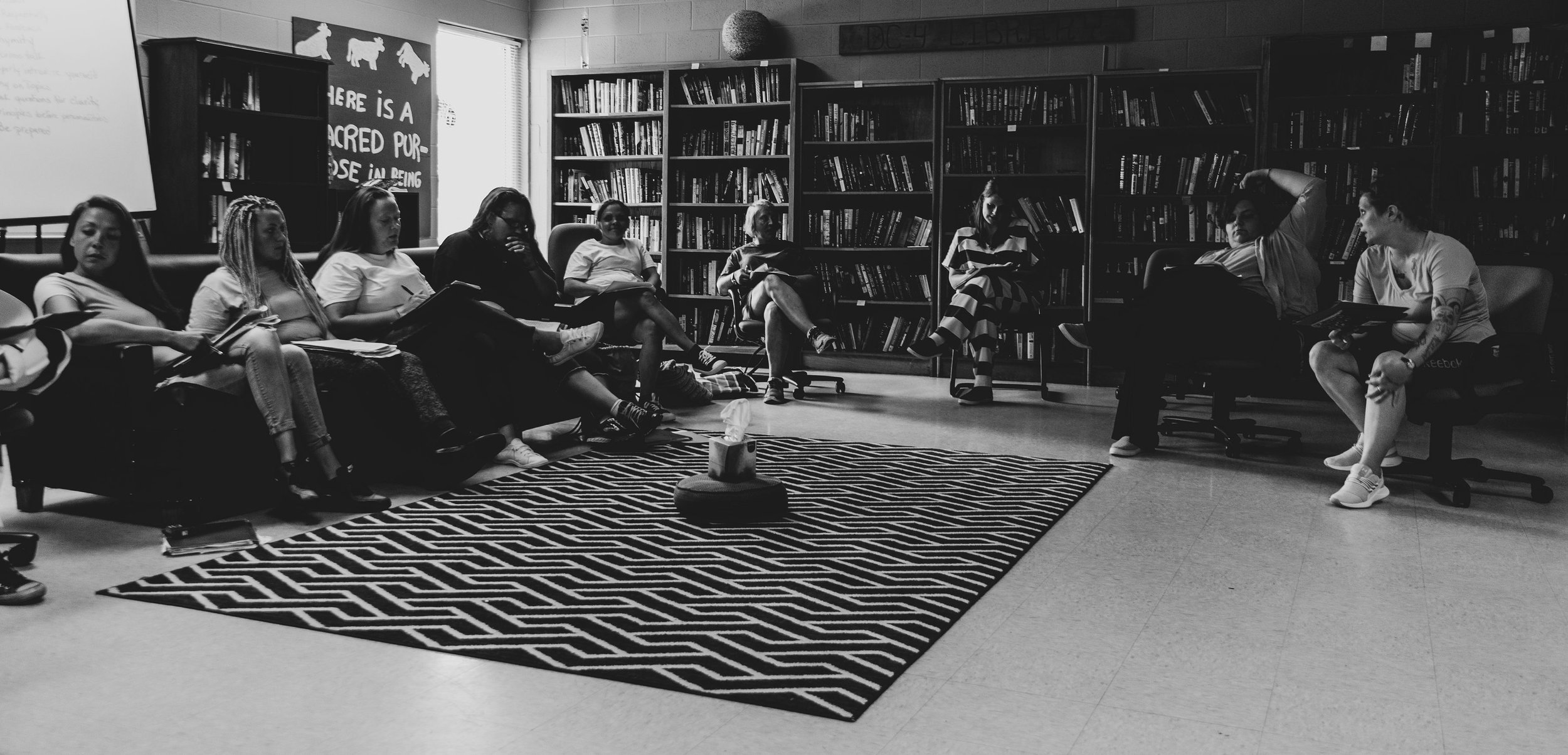
Program Phases
The therapeutic community is a program that follows a step-by-step approach to help individuals transition from substance use and unhealthy behavior to a more positive and recovery-focused lifestyle. Through this process, members learn and practice skills to deal with the daily challenges they will face when they return to society. As members progress in the program and their recovery, they become role models for newer members and are expected to set a good example for everyone in the community. The goal is for members to learn how to handle life's challenges more healthily and effectively by practicing the skills and competencies taught in the program.
Phase I
-
· In the Resocialization Phase, new residents assimilate into the new culture by "acting as if." They are guided in learning the community's rules, language, rituals, and therapeutic processes. During this phase, members learn the importance of confrontation in enhancing self-awareness and personal accountability. They also practice new behaviors that reflect the community's "Right-Living" values and expectations for consistent, pro-social behaviors.
Phase II
-
· In the Internalization Phase, members recognize negative thinking patterns, attitudes, feelings, and behaviors characteristic of a substance-use-disordered lifestyle. Community members are actively encouraged to practice self-awareness and personal accountability during this phase. The community continuously supports them in sharing newly revealed, positive social insights, forming the basis for long-term recovery.
Phase III
-
· · During the Restoration Phase, community members are expected to show trust in therapeutic principles and processes. As a senior community member, the resident should satisfactorily demonstrate "Right-Living" values and pro-social behaviors during emotional distress and when faced with related anxieties.
Aftercare
-
After completing the residential program, community members can continue their support and recovery by participating in DC4's Recovery Support Program. Under the guidance of experienced clinicians, participants learn to develop sustainable recovery plans. These plans may include referrals to transitional housing, vocational counseling, mental health treatment, medication-assisted therapy, and self-help recovery programs. This aspect of our program focuses on preventing relapse and providing support to reduce the likelihood of participants returning to previous behaviors.
Phases of the DC4 Program
DC4 employs five full-time Counselors to provide individualized treatment to program participants. A Clinical Supervisor oversees the counseling staff. Treatment services are generally delivered in four discrete phases.
Three Counselors serve Phase I and 2 residents, an Employment Case Manager serves Phase 3 residents, and one Counselor serves Aftercare participants. All participants are drug tested throughout the program.
The Presiding Drug Court Judge also conducts status hearings with each participant every two weeks to assess their progress.
Phase IV
-
· · During the Community Reintegration Phase, the treatment team believes it's time for the senior community member to return to society. In this phase, the senior peer is expected to follow all program rules and be a role model for newer members. Once the senior member has found a job and identified recovery meetings, they are expected to create and submit a weekly schedule that includes additional individualized transition or aftercare requirements. Members in this phase will be monitored, and the Community Reintegration Specialist will approve their schedules.

Key Program Facts
Purpose
Program participants with a history of substance use issues, who would typically be sentenced to prison, agree to participate in two-year program in which they receive a full continuum of residential, intensive outpatient and transitional treatment, and related services. Participants are treated in a specialized long-term residential drug treatment facility dedicated solely to individuals who are enrolled in the recovery court.
Eligibility
Candidate must qualify for participation in a treatment court program under Tenn. Code Ann. § 16-22-101 et seq.
Candidate must be considered a non-violent offender with no established history of felony or misdemeanor violence.
Candidate must not have an established history of drug trafficking offenses.
Candidate cannot have an established history of sexually deviant behavior or sex offenses.
The applicant must have a qualifying substance use diagnosis.
Program participation is voluntary. The candidate must express an interest in the program and agree to follow all rules and regulations.
Applicant must be approved for program placement by the District Attorney General and sentencing Judge from the county of conviction.
The program assessment team, the Program Director, and the Presiding Judge must approve the applicant for participation.








